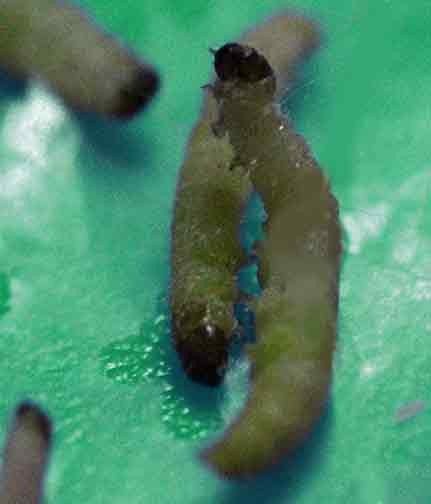FOR IMMEDIATE RELEASE
ACS News Service Weekly PressPac: December 03, 2014
Gut bacteria from a worm can degrade plastic
"Evidence of Polyethylene Biodegradation by Bacterial Strains from the Guts of Plastic-Eating Waxworms"
Environmental Science & Technology
Plastic is well-known for sticking around in the environment for years without breaking down, contributing significantly to litter and landfills. But scientists have now discovered that bacteria from the guts of a worm known to munch on food packaging can degrade polyethylene, the most common plastic. Reported in the ACS journal Environmental Science & Technology, the finding could lead to new ways to help get rid of the otherwise persistent waste, the scientists say.
Jun Yang and colleagues point out that the global plastics industry churns out about 140 million tons of polyethylene every year. Much of it goes into the bags, bottles and boxes that many of us use regularly — and then throw out. Scientists have been trying to figure out for years how to make this plastic trash go away. Some of the most recent studies have tried siccing bacteria on plastic to degrade it, but these required first exposing the plastic to light or heat. Yang’s team wanted to find bacteria that could degrade polyethylene in one step.
The researchers turned to a plastic-eating moth larva, known as a waxworm. They found that at least two strains of the waxworm’s gut microbes could degrade polyethylene without a pretreatment step. They say the results point toward a new, more direct way to biodegrade plastic.
The authors acknowledge funding from the National Natural Science Foundation of China, the National Basic Research Program of China and the Shenzhen Key Laboratory of Bioenergy.

High-resolution image

